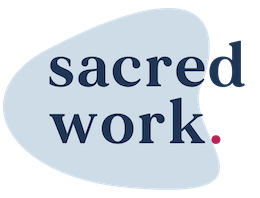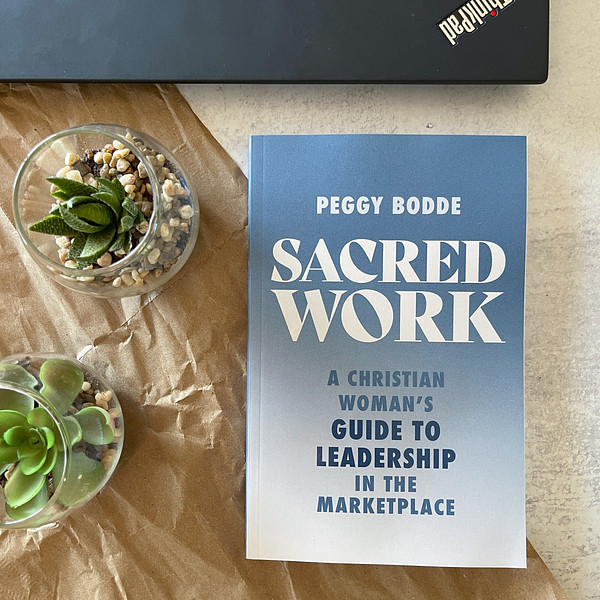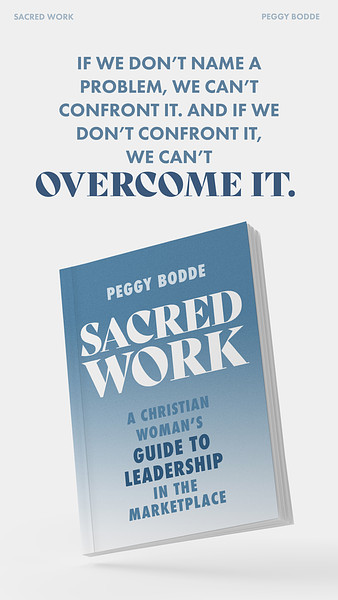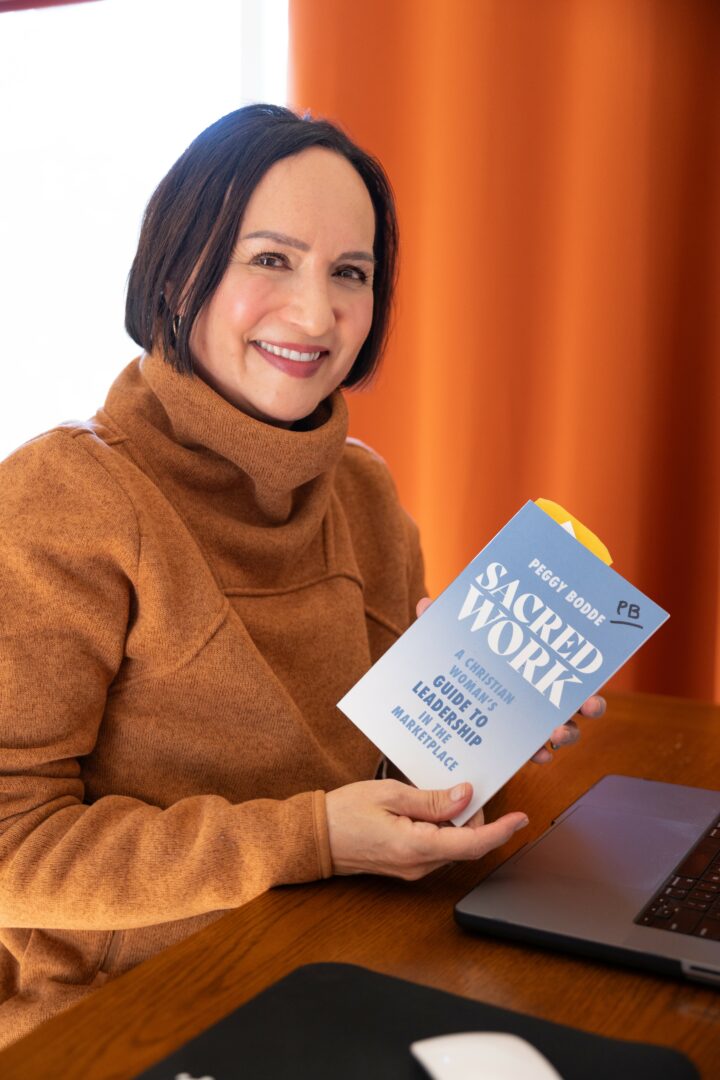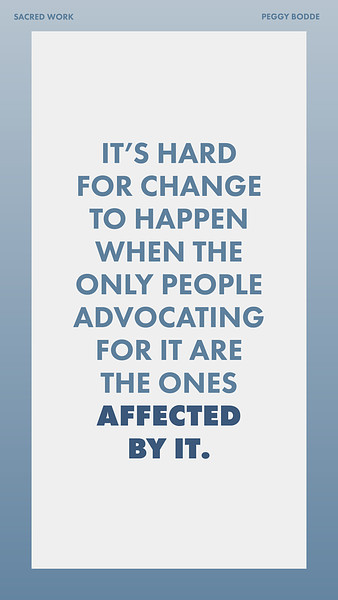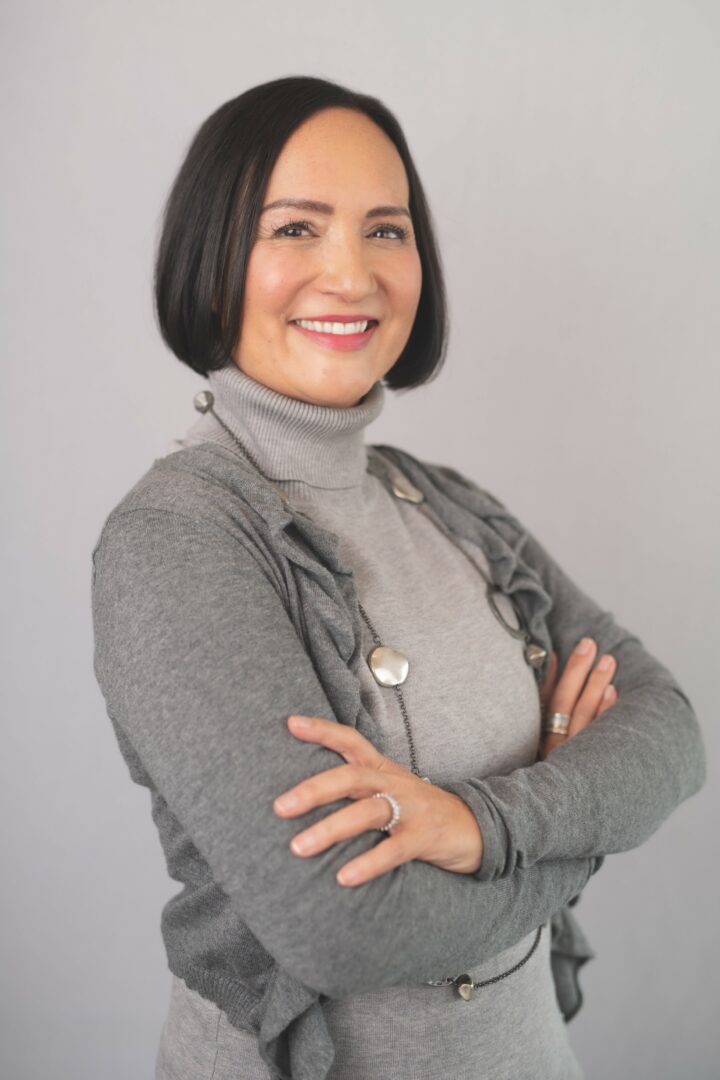We recently connected with Peggy Bodde and have shared our conversation below.
Peggy, thanks so much for taking the time to share your insights and lessons with us today. We’re particularly interested in hearing about how you became such a resilient person. Where do you get your resilience from?
I was adopted as a baby in Chicago, but my adoption story is a bit different from most. Even though we went to church three times a week and everything looked perfect on the outside, on the inside, it wasn’t a safe place for a child to grow up. There was no drug or alcohol abuse, but both parents had violent tempers. Love was conditional and came in the form of approval—for a perfectly clean room, chores performed just right, straight A’s, or some other scholastic achievement. When these often impossible standards weren’t met, the result was severe punishment.
In addition to the physical abuse, I was constantly told that I was unlovable and unwanted. Even worse, my adoptive parents said that God didn’t love me either—but He would once I was good enough. This was very confusing for me because the God I learned about in Sunday School was completely different from the God my adoptive parents described. For years, this disconnect shaped and clouded my view of God, making it hard to reconcile the faith I was taught with the experiences I lived.
When I turned twelve, we moved from the Chicago area to a small town in North Georgia to be near my adoptive father’s family. The tension and resentment between my parents increased with the move, which resulted in an escalation of violence taken out on me. At the same time, something in me began to shift. I noticed we were no longer isolated and anonymous in a big city. And I started having thoughts like, “Maybe what’s happening inside our home isn’t my fault. Maybe it isn’t normal and shouldn’t be happening.” This shift in thinking gave me courage, and I pushed back against the abuse and threatened to tell someone what was happening.
In response, my adoptive parents put me out of the house. So there I was, thirteen years old, walking down a dirt road with a garbage bag of my belongings. Looking back, I realize how many things could have gone wrong with that scenario, but at the time—all I felt was relief. Before that moment, I hadn’t realized that leaving was an option, and I knew deep down that wherever I was headed, it would be safer than the place I was leaving.
Surprisingly, the foster system was never involved. Instead, God’s providence gently bounced me from family to family within the community until I landed with the Browns. Despite having five kids of their own, they gave me a safe place to land and showed me the unconditional love I had grown up without. We prayed together before meals, Bibles were always open, and their kindness and encouragement slowly began to wash away the years of hurt and harm. God used that experience to start transforming how I saw myself and how I see Him.
Those formative years were tough, but I know now that God created me with an inordinate amount of resilience, which helped me navigate a battleground I was far too young to understand. Against all odds, I went on to receive scholarships, attend college, and eventually became the senior vice president for an international company. Though I wouldn’t want anyone to have a childhood like mine, I believe God took what was intended to harm me, and He used it for good. My ability to bounce back, cope, adapt, and thrive was forged in the darkness of my childhood. For a time, I was angry that God would allow such a situation to happen, but His love pursued me, and He gets all the credit for who I am today.
Let’s take a small detour – maybe you can share a bit about yourself before we dive back into some of the other questions we had for you?
I was a supply chain executive for twenty-five years, and then I pivoted to start a freelance writing business called Word Studio, Inc. My niche is in educational publishing, which means I research and write textbooks. I specialize in history, social studies, and civics for grades 4-12, and I love what I do.
When I left corporate, I founded Sacred Work, an organization that offers free leadership and career coaching for women. Throughout my career, I worked in a male-dominated industry, where it was difficult to find women mentors and equally challenging to find faith-forward support for working Christian women. The faith community often struggled to embrace the idea that working outside the home (and not in ministry or missions) was honorable. Work was frequently viewed as a choice that was “less-than” for women. Thankfully, the faith-and-work movement for women has come a long way, and I’m grateful to be a part of it!
I’ve always felt called to take what I’ve learned the hard way and use it to help others find an easier way—to be for them what I wish I would have had. Through Sacred Work, I help working women navigate career changes, negotiate raises, deal with workplace conflict, and advocate for themselves. I also help aspiring authors and writers understand how to navigate publishing and the freelance writing world.
A year ago, Moody Publishers launched my first book, <i>Sacred Work: A Christian Woman’s Guide to Leadership in the Marketplace</i>. The book has standalone chapters, with each one addressing a specific workplace challenge. I think of it as an extension of my foundation—a pocket-sized mentor that offers practical, biblical help for women leaders.
There is so much advice out there about all the different skills and qualities folks need to develop in order to succeed in today’s highly competitive environment and often it can feel overwhelming. So, if we had to break it down to just the three that matter most, which three skills or qualities would you focus on?
I’ve been a leader for most of my life, and the three actions I’ve consistently tried to take are to show integrity, broker hope, and love well. Employees pay more attention to what we do than what we say, and we can’t expect excellence from them if we don’t practice it ourselves. If we say that employees come first, our actions need to back up our words. If we say we value innovation and quality, our priorities and commitments should align with what we say. A simple exercise in integrity is to create a shortlist of what you value in the workplace as a leader. At the end of each week, look at the decisions you’ve made and how you’ve prioritized your time and resources. Reflect honestly on whether your actions align with your values.
History has proven that leaders will always have the opportunity to broker hope—through events like 9/11, the financial crisis of 2008-2009, the pandemic, the impact of artificial intelligence, and times of extreme political tension. During such times, the people we’ve been entrusted with need leaders who aren’t afraid to be defiantly hopeful. That doesn’t mean we ignore the crises or pretend that what’s happening in the world doesn’t affect our teams; it means the opposite. We acknowledge the hard, complicated stuff. We create a safe space for employees to voice their fears and express how they feel impacted. When fears are named, they lose their power, and hope thrives through being heard. As leaders, it’s our responsibility to steer people through difficult times in ways that inspire hope and ease fear. We achieve this by remaining calm, listening, offering encouragement—and thoughtfully addressing or mitigating stress points. As a Christian, I see this as one way we can bring God’s light into dark spaces.
I’ve read hundreds of leadership and management books, and very few tell us to love our employees. But, God clearly places a high priority on love! If we want to be faith-forward leaders, we can’t overlook the importance of love. The Bible tells us that love sets us apart and commands us to love. So how can this translate to workplace leadership? We pray for our employees, advocate for them, and invest time in them. If an employee loses someone they love, pay your respects. If there’s a company event and an employee’s family shows up, make an effort to connect with them. If they’re having a rough time, recognize it and offer to help. Strive to love well!
How can folks who want to work with you connect?
I’d love to collaborate with nonfiction authors who are already published and are interested in helping each other improve the selling and marketing of their books. I’m putting together an author cohort to exchange ideas and share what we’ve done that has—or hasn’t—worked. The idea is to learn from one another and help one another build traction. Most writers struggle with sales, marketing, and publicity, and addressing these challenges as part of a community is the way to go! There is no cost, and this collaborative effort will require minimal time commitment. Interested authors can reach me at [email protected].
Contact Info:
- Website: https://www.peggybodde.com/
- Instagram: https://www.instagram.com/peggybodde/?hl=en
- Facebook: https://www.facebook.com/peggybodde
- Linkedin: https://www.linkedin.com/in/peggybodde/
